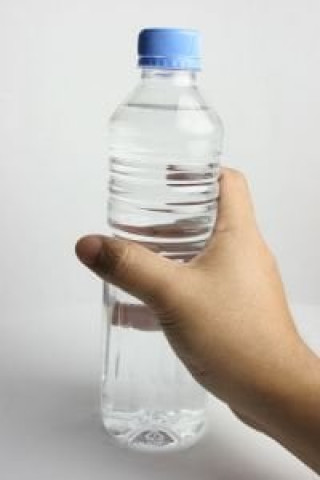Drop of life: For residents of Benazir’s constituency, drinking water is a distant dream
The people of Kamber and Shahdadkot must buy potable water from vendors on donkey carts

The people of Kamber and Shahdadkot must buy potable water from vendors on donkey carts. STOCK IMAGE
Although the PPP government claims to have broken past records of development by spending billions of rupees, former prime minister Benazir Bhutto's constituency in Kamber and Shahdadkot towns remains deprived of the basic facility of potable water.
Every successive PPP government from 1988 onwards had promised, announced and allocated funds for water sanitation schemes for both the towns. None of these schemes have seen the light of the day.
"The water underground is undrinkable," Sindhi writer and social activist Bhao Dur Mohammad Buriro told The Express Tribune. "Since our childhood, we have been watching these vendors sell water to the residents from their donkey carts."

According to Buriro, the people have staged sit-ins and protests in an attempt to draw the attention of the authorities but their efforts have gone in vain. "When Benazir was the prime minister, she publicly promised the people of Kamber and Shahdadkot that she would fix this issue but her party's government has still not honoured this promise," he complained.
After Benazir's assassination in 2007, PPP MNA Faryal Talpur was elected from the NA-207 constituency of Kamber twice. But both times, the residents only saw her during her election campaigns.
Love for the PPP still prevails among the 300,000-strong population of Kamber but, when it comes to basic facilities, it is clear that the party does not have the answers. Since potable water is scarce in Kamber, the people have installed hand-pumps wherever fresh water can be found nearby.
The PPP secretary-general in Kamber, Ghulam Mustafa Bhutto, runs a restaurant, for which he buys Rs400 worth of water daily. "Drinking water is a genuine issue but the approved schemes have been delayed for over 25 years," he told The Express Tribune. He added that party founder and former prime minister Zulfikar Ali Bhutto had provided a water supply scheme in the 1970s but it had failed to yield the desired results since the water lines had been muddled up with the sewerage lines.
About one and a half kilometres away from the town, donkey carts line up waiting for their turn to fill their dirty tanks with fresh water. A few enterprising people have also set up electric motors to pump out water that they can then sell to the vendors at Rs15 for a five-litre can or Rs150 to Rs200 for a large drum.
Adjacent to Kamber, Mastoi Muhalla, with its lush green paddy fields, is known in the area because of the number of hand-pumps installed there. "Around 200 vendors come here to fill up their tanks before they go to sell water to different muhallas (neighbourhoods) in Kamber," explained Hassan Ali Brohi, a vendor who has been in this trade since 2001. "I sell eight to 10 tanks of water every day, earning Rs1,000."
Shahdadkot, where feudals from the Magsi tribe belonging to the PPP have always won national and provincial assembly seats, faces similar problems. Despite many attempts to contact Shahdadkot MPA Nadir Magsi, he remained unavailable for comment.
Meanwhile, Kamber MPA Ghulam said that the government had allocated Rs400 million for a water supply scheme in the town that was in its final phase. He further claimed that 80 per cent of the work had been completed and the project would be inaugurated by the end of 2015.
Published in The Express Tribune, January 20th, 2015.



















COMMENTS
Comments are moderated and generally will be posted if they are on-topic and not abusive.
For more information, please see our Comments FAQ